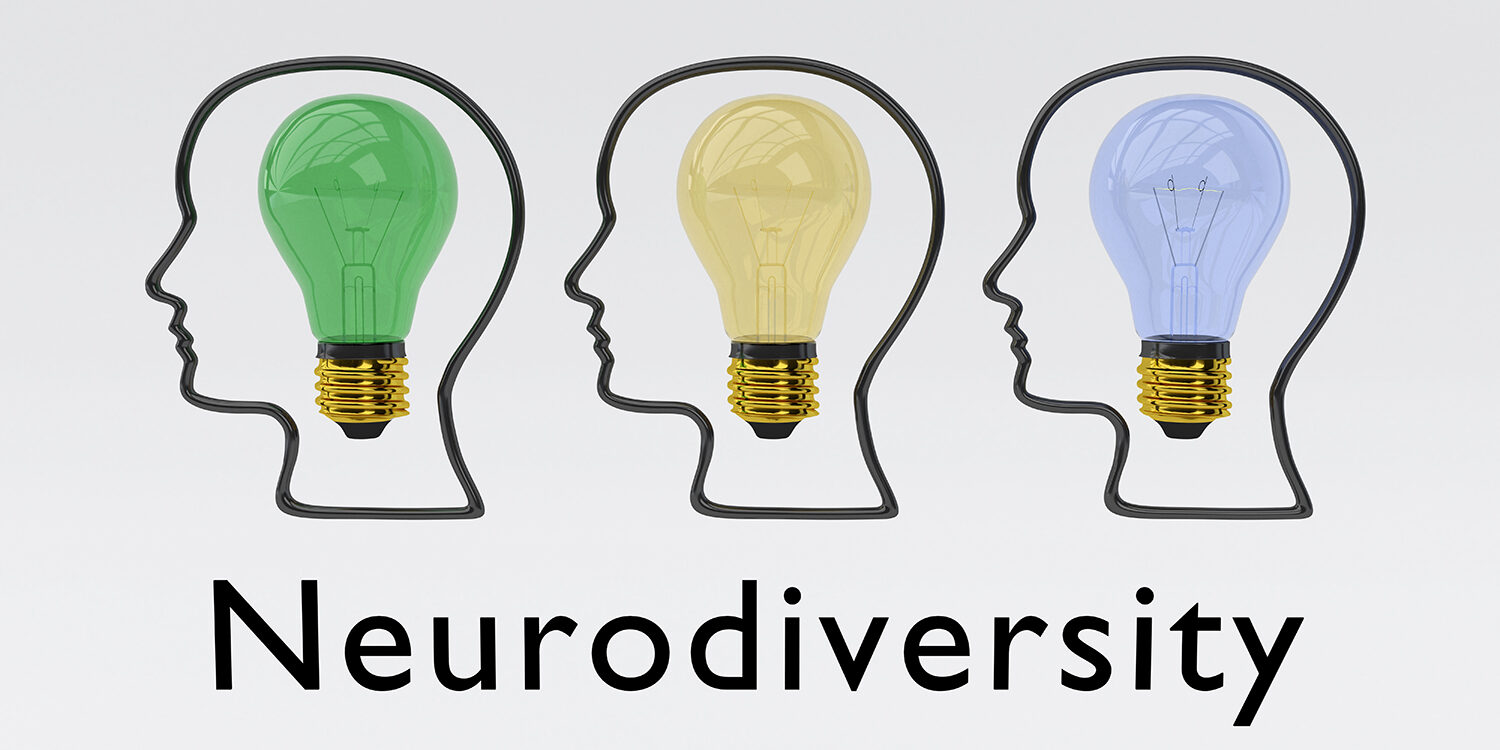A lack of awareness and understanding of neurodiversity means it has rarely been considered in the design of workplace processes, management practices, environments or in the way work is organised. The norms and ways of working that emerge may therefore suit some but not others – perhaps as many as up to 20% of people who identify as neurodivergent in some way. Neurodivergent people may find themselves marginalised by organisation cultures, processes and technology that don’t consider their thinking styles.
Article by the Chartered Institute of Personnel and Development
While all brains are different, some people with broadly similar ways of thinking, communicating and processing information can have a sense of shared identity and experience – for example, an identity as autistic, dyslexic, or as an ADHDer. For many, the spark to such an identity comes through receiving a specific medical diagnosis or diagnoses. People who possess one or more such identities often identify or are referred to as ‘neurodivergent’. In the words of Dr Nick Walker (author and educator), neurodivergence can be thought of as, “having a mind that functions in ways which diverge significantly from the dominant societal standards of ‘normal’.”
Someone who does not possess a neurodivergent identity may be referred to as ‘neurotypical’, although in reality this is highly contextual, and there is no one ‘normal brain’.
What’s included under the umbrella of ‘neurodivergence’ is debated, but what’s clear is that we need to do more to consider different thinking styles (types of information processing, learning, and communication styles) at work to be able to unleash individual and collective potential. Once we accept that we are all different, each with our own strengths and challenges, perspectives change. But how do we create a workplace where everyone in the team can be productive? And how do we hire so that we attract every bit of potential talent that can add value at our organisation?
Organisations are increasingly prioritising EDI and employee wellbeing, recognising the link with a responsible and high-performing workplace. But within EDI, neurodiversity remains a substantially overlooked area. This is a reflection of the lack of understanding in society until very recently.
The problems of overlooking neurodiversity are now becoming clear – for example, overlooked talent pools, not enabling people to be their most productive at work, and detrimental impacts on employee wellbeing. And, as our survey results show, it’s increasingly clear that there’s often a disconnect between business aspirations and commitments to creating a diverse, fair and inclusive organisation, and the reality for their neurodiverse teams on the ground.
70% say EDI is a critical priority for their organisation and a high 83% say employee wellbeing is. However, just 60% say that neuroinclusion is a focus for their organisation and a low 33% say it’s in their EDI strategy or action plan.
When asked about their experiences at work, just under half (53%) of employees surveyed say their organisation has an open and supportive climate where employees are able to talk about neurodiversity. And, worryingly, a third of neurodivergent employees surveyed said their experience at work in relation to their neurodivergence has had a negative impact on their mental wellbeing.
However, over the past few years there has been gradual progress. Neurodivergent self-advocacy has grown. And leading organisations have begun to recognise and act on the importance of embracing neurodiversity in their teams, many finding that the upside outweighs the minimal time and effort to adjust workspaces and work processes to be inclusive to people with alternative thinking styles. Focusing on neuroinclusion is already giving those organisations an advantage – hiring people they wouldn’t have hired, making better managers, boosting comfort at work, supporting retention, and bolstering creative problem-solving. Take a look at our survey report for more detail on what employers are saying about the business benefits of neuroinclusion.
The business case for EDI has highlighted the importance of ‘diversity of thought’ – get people with different perspectives, backgrounds and experiences in a room, and your team will be more innovative and creative. However, to realise these benefits, your organisation needs to be neuroinclusive, with a dedication to equality of outcomes for all types of thinkers.
Neurodiversity can seem a complex topic at first, given it’s often hidden and there’s a lack of awareness and understanding in wider society of the topic. Yet, as this guide and accompanying survey report make clear, embracing it offers real business value.
Embracing neurodiversity is becoming ever more expected by an increasing number of job candidates who are looking to work for a socially responsible organisation, whose values and stated commitments match the reality of working there. There is a growing expectation for employers to be flexible and supportive and to have a culture where people are able to be themselves and do their best work. CIPD’s survey data shows the benefits for employees and for organisations of action.
Neurodiversity is vital for the future of work. By committing to ensuring your organisation is neuroinclusive and there is equality of opportunity and outcomes for all types of thinkers, you can ensure your organisation doesn’t get left behind.







